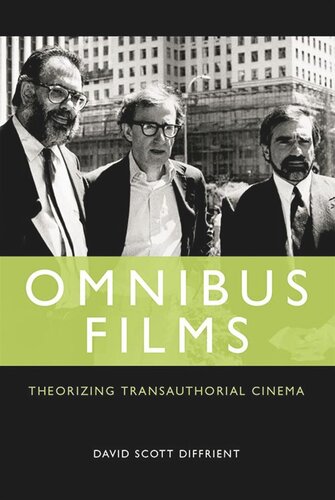

Most ebook files are in PDF format, so you can easily read them using various software such as Foxit Reader or directly on the Google Chrome browser.
Some ebook files are released by publishers in other formats such as .awz, .mobi, .epub, .fb2, etc. You may need to install specific software to read these formats on mobile/PC, such as Calibre.
Please read the tutorial at this link: https://ebookbell.com/faq
We offer FREE conversion to the popular formats you request; however, this may take some time. Therefore, right after payment, please email us, and we will try to provide the service as quickly as possible.
For some exceptional file formats or broken links (if any), please refrain from opening any disputes. Instead, email us first, and we will try to assist within a maximum of 6 hours.
EbookBell Team

5.0
38 reviewsOmnibus films bring together the contributions of two or more filmmakers. Does this make them inherently contradictory texts? How do they challenge critical categories in cinema studies? What are their implications for auteur theory?
As the first book-length exploration of internationally distributed, multi-director episode films, David Scott Diffrient’s Omnibus Films: Theorizing Transauthorial Cinema fills a considerable gap in the history of world cinema and aims to expand contemporary understandings of authorship, genre, narrative, and transnational production and reception. Delving into such unique yet representative case studies as If I Had a Million (1932), Forever and a Day (1943), Dead of Night (1945), Quartet (1948), Love and the City (1953), Boccaccio ’70 , (1962), New York Stories (1989), Tickets (2005), Visions of Europe (2005), and Paris, je t’aime (2006), this book covers much conceptual ground and crosses narrative as well as national borders in much the same way that omnibus films do.
Omnibus Films is a particularly thought-provoking book for those working in the fields of auteur theory, film genre and transnational cinema, and is suitable for advanced students in Cinema Studies.